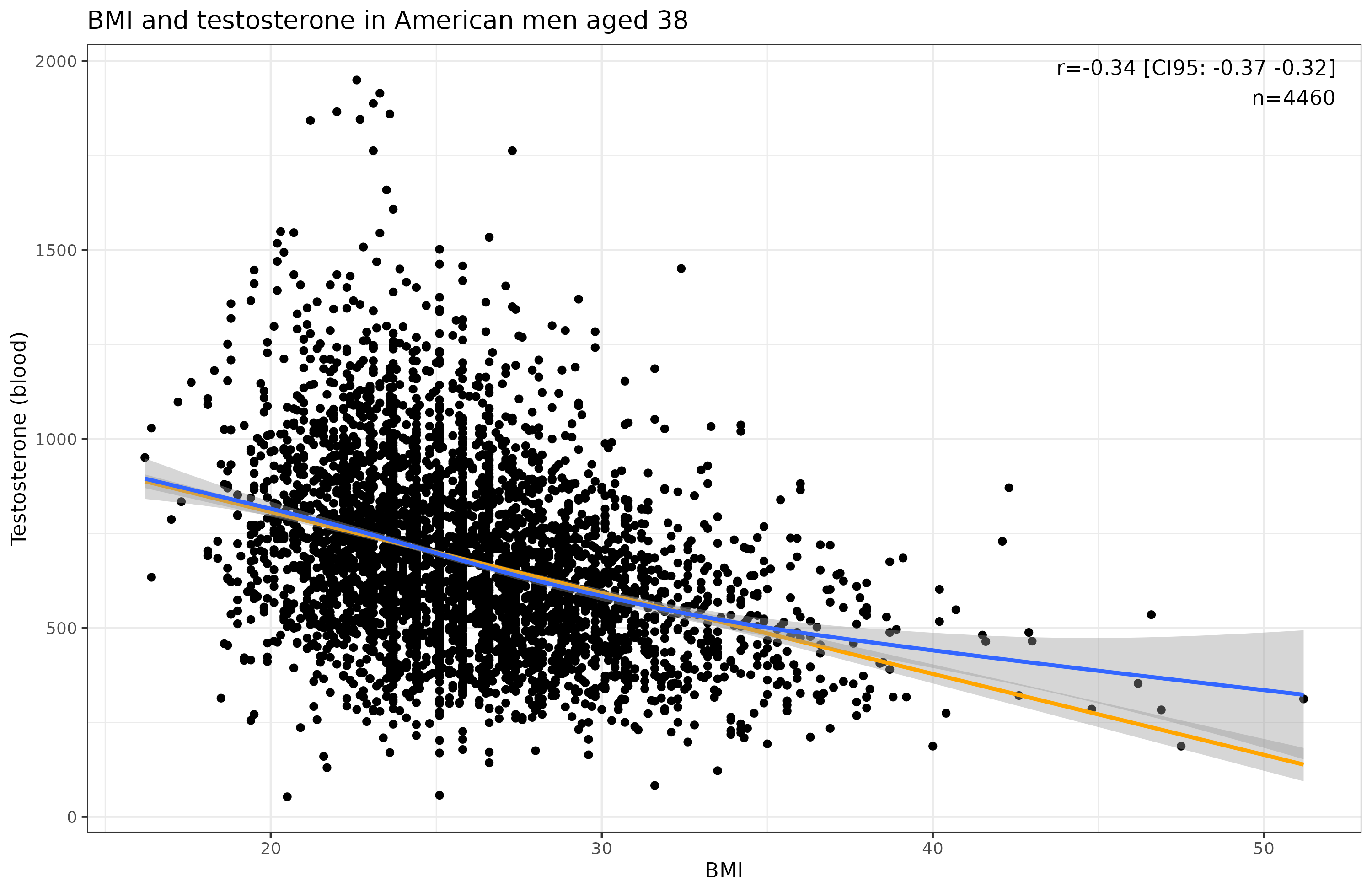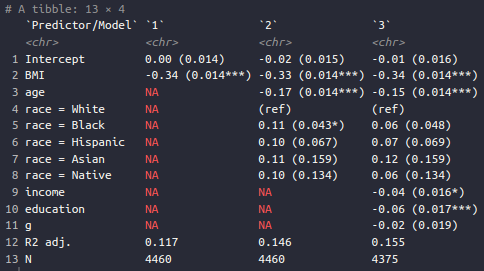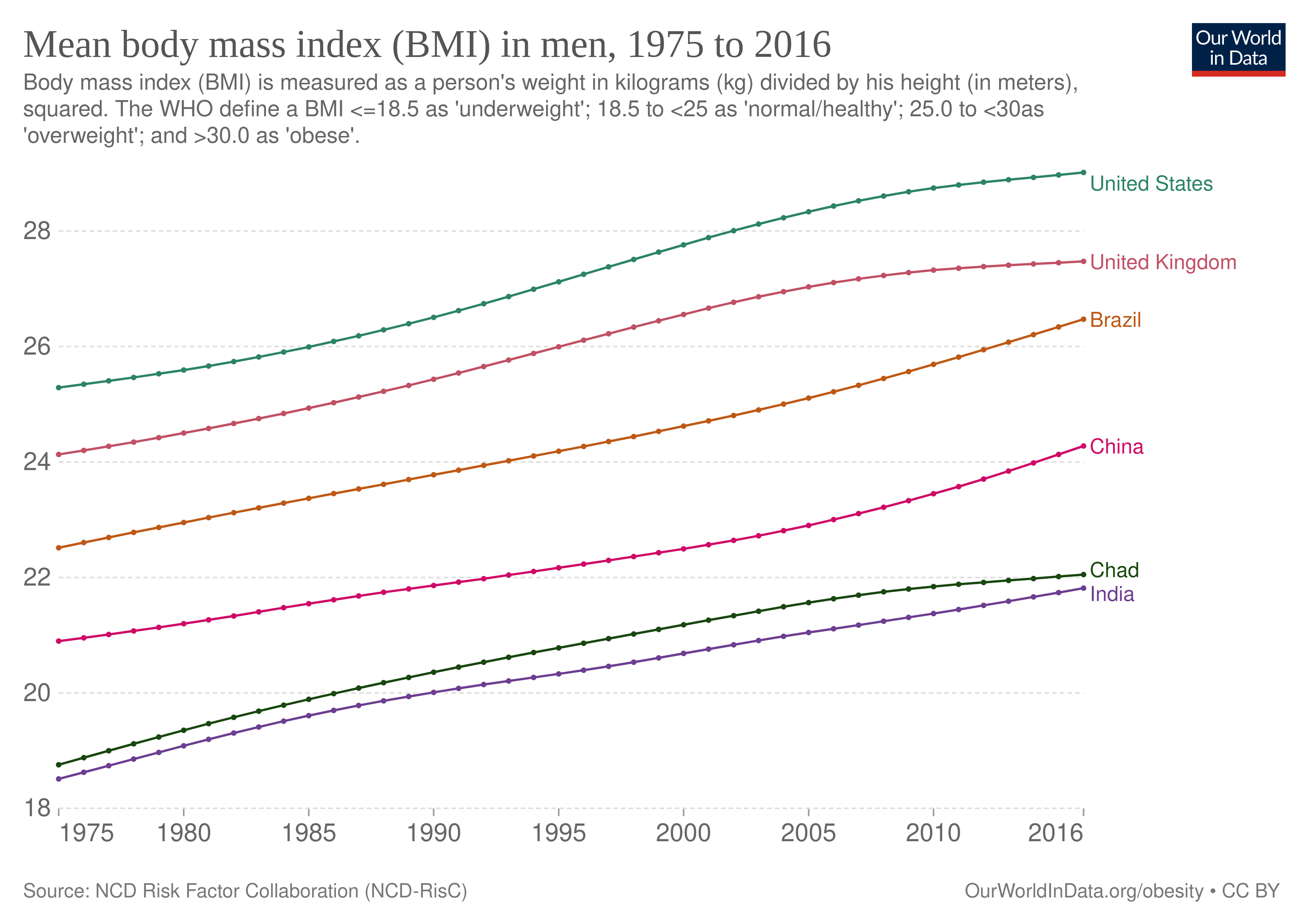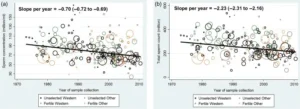One thing I didn’t address in the last post about the decline of everything manly is that obesity is a potential cause of secular declines in testosterone. That’s because the relationship between obesity and testosterone in the blood is actually very strong, apparently because fat tissue absorbs it, at least, that’s what the internet people claim (I wasn’t able to find an academic study). Visually, it looks like this, using BMI as proxy for fat% (r = .82):
The data are from the ever relevant Vietnam Experience Study, which you can download here. It’s a sample of American veterans that the US army collected to disprove claims that agent orange causes various things they would otherwise have to pay for. Jokes on them, they are paying for a lot of other stuff now. The relationship between BMI and testosterone is pretty strong and linear (blue line = nonlinear GAM fit). Age is not much of a confound here because these men are about the same age. The regression model controlling for the obvious things looks like this:
Testosterone is the outcome, the quantitative variables are standardized. The standardized beta is the same across models, even controlling for age, race, income, education, and intelligence (g). Clearly, the link from BMI to lower testosterone isn’t confounded in any obvious way, not even partially. Thus, it appears to be causal as the internet people say. So does it explain the decline of testosterone? Probably in part. Let’s recall what the obesity trend looks like:
There are longer running datasets, but they tell the same thing. The study that looked at the decline of testosterone actually tried controlling for BMI, and it did remove the trend:
Objective: The objective of the study was to examine whether an age-independent time trend in male serum testosterone levels exists.
Design and Setting: Testosterone and SHBG were analyzed in 5350 male serum samples from four large Danish population surveys conducted in 1982–1983, 1986–1987, 1991–1992, and 1999–2001. Free testosterone levels were calculated. The effects of age, year of birth, and time period on hormone levels were estimated in a general linear statistical model.
Main Outcome Measures: Testosterone, SHBG, and calculated free testosterone levels in Danish men in relation to age, study period, and year of birth were measured.
Results: Serum testosterone levels decreased and SHBG levels increased with increasing age. In addition to this expected age effect, significant secular trends in testosterone and SHBG serum levels were observed in age-matched men with lower levels in the more recently born/studied men. No significant age-independent effect was observed for free testosterone. Adjustment for a concurrent secular increase in body mass index reduced the observed cohort/period-related changes in testosterone, which no longer were significant. The observed cohort/period-related changes in SHBG levels remained significant after adjustment for body mass index.
Conclusions: The observed age-independent changes in SHBG and testosterone may be explained by an initial change in SHBG levels, which subsequently lead to adjustment of testosterone at a lower level to sustain free testosterone levels.
But only for testosterone, not for SHBG (Sex hormone-binding globulin), maybe that’s important too, I don’t know. So maybe the story is that obesity rates decrease testosterone, and this decrease causes the other manliness problems in men. That would be a simple, convenient theory. But I am tempted not to accept it entirely because we see a lot of these people these days:
As BMI is clearly not causal for these femboys, it seems we still need at least one secondary factor. Maybe something like this:
This model fits well with typical Uncle Ted takes, where technological progress is a kind of root cause of our problems.






